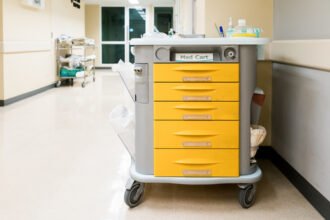Assisted living facilities provide housing and support for older adults who may need help with daily tasks but do not require round-the-clock medical care. These facilities intend to offer a safe and comfortable environment. However, concerns arise about the effectiveness of abuse reporting systems in ensuring the health and safety of residents.
Elder abuse in assisted living can take various forms. For example, cases of physical harm, emotional mistreatment, neglect, and financial exploitation are not uncommon. In many other circumstances, this abuse has a direct impact on the health and well-being of the residents.
Let’s explore if current reporting systems adequately protect residents and what can improve them.
The Framework of Abuse Reporting Systems
Assisted living facilities must legally implement protocols to identify and address abuse. Key elements of this framework include:
- Mandatory Reporting Obligations
Most states mandate that assisted living facilities establish internal policies for reporting and investigating abuse allegations. These policies outline staff responsibilities, reporting steps, and internal investigation processes. All employees must immediately report suspected abuse to administrators, Adult Protective Services (APS), or law enforcement if criminal activity is suspected. They aim to create an initial layer of protection and response within the facility.
- Investigation Protocols
Facilities must conduct prompt internal investigations, documenting:
- Timelines, witnesses, and descriptions of incidents.
- Staff responses and corrective actions.
- The administrator reviews to prevent recurrence.
- Collaboration with External Agencies
Agencies like Wisconsin’s Bureau of Assisted Living require misconduct reports within seven days, followed by a quality assurance review. Facilities must coordinate with APS for non-criminal cases and involve police when crimes like assault or theft occur.
Gaps in the Current System
Despite structured frameworks, system flaws still persist in abuse reporting systems.
- Underreporting of Abuse
Underreporting is one of the main reasons why abuse still takes place. If harm is stopped at its grassroots level, it will not become a bigger problem. However, residents may not report abuse at times because of fear of retaliation, feeling ashamed, having cognitive impairments limiting communication, or doubting the seriousness of their concerns. Staff may fear job loss or social stigma, contributing to a culture of silence. In these cases, reaching out to an assisted living abuse lawyer can help residents or their families navigate the legal process and hold facilities accountable.
- Barriers to Transparency
Facilities may prioritize reputation over resident safety, as seen in cases where administrators delayed reporting to avoid scrutiny. Families often struggle to access investigation records, relying on whistleblowers or legal action to uncover abuse. This lack of transparency and accountability can further erode trust in the system and hinder efforts to protect residents.
- Failure to Recognize Signs of Abuse and Neglect
Subtle signs of abuse can be masters of disguise, easily mistaken for the natural decline of aging or pre-existing conditions, especially in those whose minds are already clouded by cognitive impairments. Inadequate staff training on recognizing abuse is a significant barrier. This can lead to a dangerous normalization of maltreatment, allowing it to persist undetected and unaddressed.
Strategies to Enhance the Effectiveness of Abuse Reporting Systems
Improving abuse reporting systems requires multi-layered reforms. Some of them are listed below.
- Fostering a Culture of Safety and Transparency
Promoting open communication, encouraging reporting without fear, and implementing zero-tolerance policies are essential. Regular staff training on resident rights and reporting procedures is also critical.
- Strengthening External Oversight and Accountability
Increasing the frequency and rigor of state inspections, standardizing reporting requirements, and empowering regulatory agencies with resources and authority is crucial. Collaboration with ombudsman programs and advocacy groups can further enhance oversight.
- Empowering Residents and their Families
Providing clear information about resident rights, care plans, and grievance procedures empowers residents to advocate for themselves. Family involvement in monitoring care and communicating concerns is also a vital safeguard.
- Simplifying and Improving Access to Reporting Mechanisms
It is vital to provide multiple reporting avenues (hotlines, online portals, contact information for external agencies) and ensure residents and families are aware of these resources.
Endnote
While abuse reporting systems provide a critical framework for resident protection, their efficacy is undermined by inconsistent enforcement and institutional opacity. Strengthening these systems demands stricter oversight, staff accountability, and empowerment of families through legal and advocacy resources.










